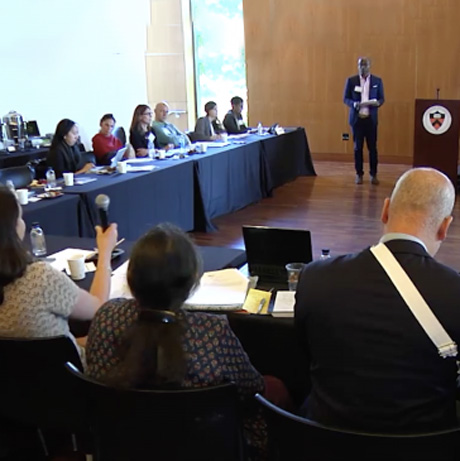THE ROUNDTABLE
The Dignity Roundtable included a program of about forty-five scholars and practitioners working in a dozen countries on issues of financial inclusion, household finance, and/or the human values implicated in economic action. The Network’s Director, Frederick Wherry, opened with the question of why questions of dignity and respect are central to understanding debt. Social Science Research Council President, Alondra Nelson, explained the importance of anticipatory social science for predicting and solving critical problems. And Princeton University President, Christopher Eisgruber, made the case for inequality as a strategic priority for research, teaching, and service.
Hear from the DDN Director, Frederick Wherry, Professor of Sociology at Princeton on the mission of the Network.
Hear from Alondra Nelson, president of the Social Science Research Council, on anticipatory social research, getting ahead of emerging demographic shifts and unexamined vectors of inequality.
Hear from Princeton University President, Christopher Eisgruber on why dignity and debt are strategic priorities for the university.
THE DIGNITY ROUNDTABLE
The program for the Dignity + Debt Network Roundtable at Princeton began with a “Dignity Roundtable” of panelists describing how dignity and respect appear as motivating values for people using credit and debt. With an economist, a cognitive psychologist, a sociologist, and two anthropologist in dialogue, they explored how people experience dignity and seek to affirm it when making decisions about debt. The panel began with the question of how the delivery of debt affects individuals’ understandings of themselves as autonomous, self-directed, and respected (like everyone else). The panelists placed these meanings of debt and dignity into natural and laboratory contexts where debt is experienced as dignity-enhancing or degrading.
Hear from a "Dignity Roundtable" of panelists describing how dignity and respect appear as motivating values for people using credit and debt.
